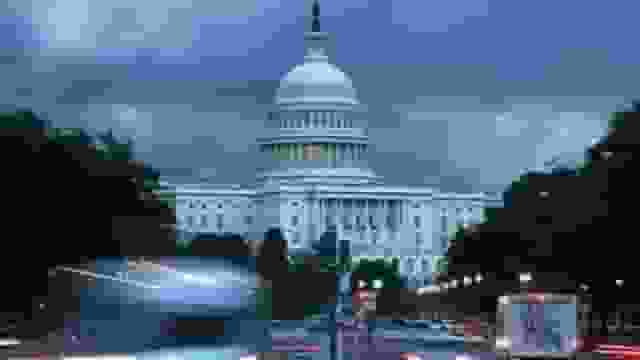As policymakers race for methods to rein in runaway inflation, the Biden administration is embroiled in a discussion over whether to lift tariffs put in place during the Trump administration and applied to $335 billion worth of Chinese imports.
The argument for removing the trade war tariffs is that doing so would cut the price of imports like steel, electronics, and autos while also lowering record-high inflation, which reached 8.6 percent in May.
The White House person tasked with reaching a new agreement on trade ties between the two biggest economies in the world, U.S. Trade Representative Katherine Tai, believes the levies should continue.
Tai asserted that the high tariffs are a “important” instrument in Washington’s ongoing trade negotiations with China, saying that a trade negotiator “never walks away from leverage” at a Senate hearing on a request for increased financing for Tai’s office on Wednesday.
The tariffs on Chinese imports were initially introduced by the Trump administration in 2018. At the time, Beijing was accused of participating in “unfair” trade practises, including the forced sharing of technology by international companies with domestic rivals in order to obtain access to the Chinese market.
With its own tariffs in retaliation, China widened the scope of the ongoing trade spat by slapping duties on $158 billion worth of American goods.
After months of talks, Washington and Beijing finally agreed to a “Phase One” trade agreement in 2019.
Using the level of imports from 2017 as a benchmark, China committed to increase its purchases of American goods by $200 billion by the end of 2021. In return, the U.S. dropped some tariffs—which at the time covered imports worth more than $550 billion—and postponed plans to enact new import penalties.

According to the Peterson Institute for International Economics (PIIE), the United States maintains an average tariff of 19.3 percent on around two-thirds of all goods sourced from China, or on goods worth about $335 billion.
But according to Chad Bown, senior fellow at PIIE, as of March, China had not paid any of its $200 billion due.
Tai is still doubtful that China would fulfil its promises.
Tai testified before the Senate, saying that the U.S. must “use all available means, and build new instruments, to defend our economic interests and principles.” She said that the U.S. has repeatedly requested and obtained commitments from China but that real reform has remained elusive.
Tai previously acknowledged that trade talks on a possible “Phase Two” agreement with China had stalled and emphasised the need for a new set of instruments to maintain the United States’ “global competitive edge.”
However, Tai is one of the few representatives prepared to publicly support the tariffs. Reduced import taxes, according to some officials in Biden’s administration, would aid in bringing down consumer prices in the US.
U.S. Treasury Secretary Janet Yellen said in an interview with ABC’s This Week on Sunday that “reconfiguring some of those tariffs so they make more sense and minimise some unnecessary costs is something that’s under discussion.”
The tariffs “have no strategic purpose,” according to Yellen, which may be true given that China has not yet complied with the terms of the Phase One agreement.
Both the deputy national security adviser Daleep Singh and the secretary of commerce Gina Raimondo have expressed an interest in lowering some of the levies.
Read more:-
- Six People Died in a Vintage Helicopter Crash in West Virginia
- The Ukraine region endures shelling as “everything is on fire”
- Netflix Dismisses 300 Employees as Subscription Numbers Are Falling
Outside of the White House, economists disagree on whether lowering tariffs is the best course of action for bringing down inflation.
PIIE analysts predicted in March that lowering tariffs and other trade restrictions by the equivalent of two percentage points would result in a 1.3 percentage point drop in inflation.
Other economists contend that cutting tariffs is unlikely to have a significant long-term impact on inflation, as doing so would necessitate either raising supply or decreasing demand.
According to Michael Pettis, a finance professor at Peking University, “imposing tariffs and repealing tariffs do neither.”


